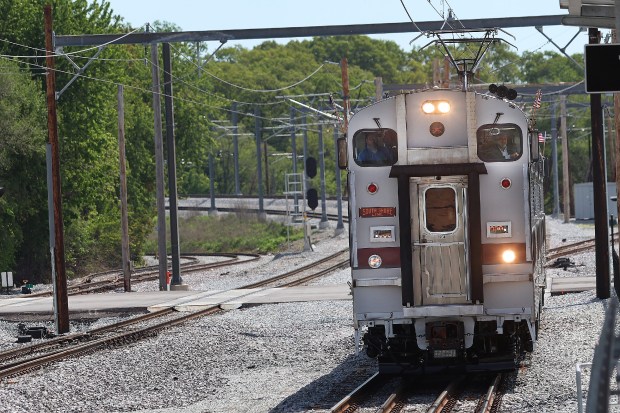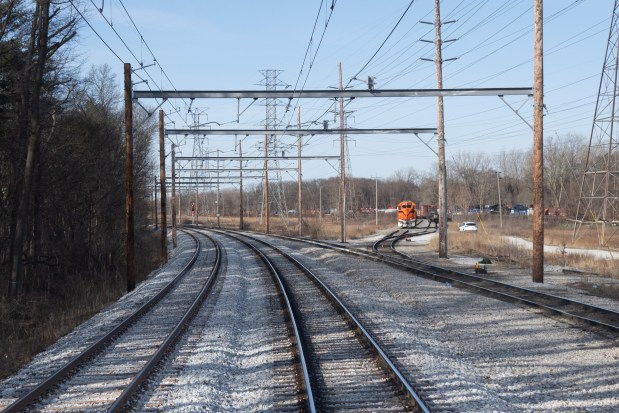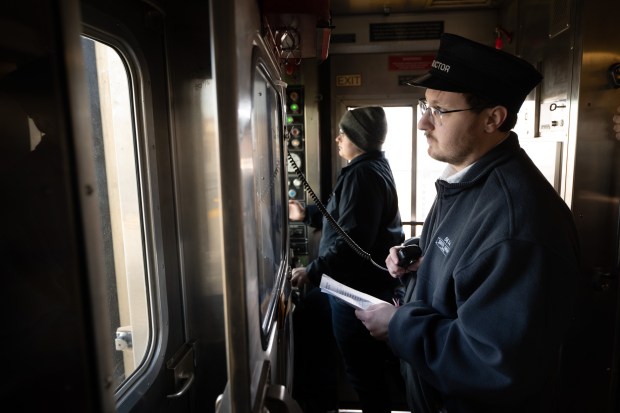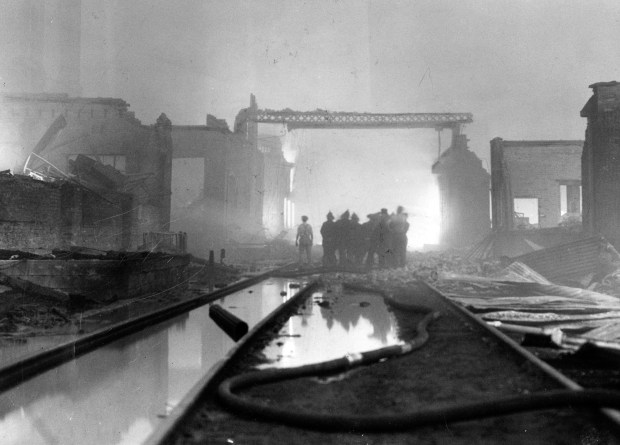The new schedule for South Shore passenger trains won’t be the last tweak, President Michael Noland promised.
“Until you run a schedule, it’s all theoretical,” Noland said. “We’re not going to put our feet in clay and say, ‘This is the schedule and forevermore we won’t make any adjustments,’” he said.
“We need to be more nimble,” Noland said. “If we see something in there that isn’t working, we’re going to come back to the board and improve it.”
Like Noland, Northern Indiana Commuter Transportation District Chairman Michael Smith also expressed his concern about improving on-time performance.
In June, 27.8% of trains were on time, with 20% six to 10 minutes late and 20.2% 11 to 15 minutes late. During the morning rush, nearly 54.8% of trains were on time and 14.3% were five to 10 minutes late, the NICTD board learned Monday.
June saw some unusual circumstances that affected on-time performance, including a gas leak that suspended traffic for hours, a railroad crossing incident, a lightning strike and a bridge collision, Chief Operations Officer Anthony Hall said.
NICTD released a new schedule, effective the third week of August, on Monday.
Since the Double Track project was completed, the South Shore has been plagued with delays. Part of the reason is the old schedule built in some wiggle room that no longer exists, Noland said.
“We want it to be known this is a brand new set of infrastructure that we that we opened up on May 14,” he said. “There is no recovery time in the schedule now. We had tons of recovery time in the old schedule, and so we’re finding out what this railroad can do.”
“I’ll take every single delay of every week on every single train rather than compromised safety,” he said. “That will never happen.”
“We are very sensitive to wanting to perform as best as possible. We want to improve on-time performance but not ever at the expense of safety,” he said.

Noland said he was amazed at the response rate to surveys sent to passengers. About 2,600 responses were received.
Of the top 10 requested improvements, No. 10 was nicer conductors, said Kelly Wenger, director of strategic planning. That might be the result of conductors trying to get passengers to disembark and board faster to keep the train running on time, she said.
Riders also suggested more express trains and more service at stations. Those two are at odds; stopping more frequently increases travel times.
Another suggestion was better communication when service is impacted. “In September, we’re installing a new public information display system so that we can make announcements better on our platforms and communicate our message in a much more efficient manner,” Noland said.
Increasingly, riders are using the South Shore app to purchase fares and check schedules. There’s also a train tracker feature on the app so riders can see whether the train they’re expecting is running late.
The NICTD board also approved seeking permission to end weekday stops at McCormick Place except for major events like the Chicago Auto Show.
Eliminating that stop should help South Shore trains avoid getting stuck behind Metra trains, speeding the travel time to Millennium Station.

The South Shore is also working on a $200 million construction project to add a fourth line into Millennium Station, further addressing congestion on Metra lines in the heart of Chicago. Were it not for the Double Track and West Lake Corridor projects, that $200 million project would be the biggest project the board has ever undertaken, Noland said.
Among the features of the new schedule released Monday, is more strategic scheduling at the Kensington and Millennium stations to avoid getting stuck behind Metra local trains and their frequent stops.
Extra trains are also being added, especially in the weekday off-peak period, to account for ongoing Metra station upgrades over the next two to three years.
Trains also will be able to depart up to four minutes ahead of schedule if they arrive at a station early.
The board also agreed to a feasibility study to look at whether to build a station at New Carlisle.
NICTD board member Carl Baxmeyer, representing St. Joseph County, said the town has suffered economically, but with major private investment just west of there, there is a renewed sense of optimism. “They are not a negative voice that you might have heard previously,” he said.
“My guess is given that there’s like three or four people a day that ride out of Hudson Lake, we probably would swap – because they’re very close communities – the Hudson Lake station for the New Carlisle station,” Noland said.
The board also approved a tentative agreement to move the South Bend airport station from the east side of the airport to the west side. A final agreement is expected within 60 days. Moving the station will reduce the $75,000 rent to the airport.
Doug Ross is a freelance reporter for the Post-Tribune.





